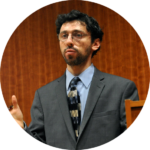
First Jewish presence: mid-17th century; peak Jewish population: 140 in 1933 (see below); Jewish population in 1933: 140
The earliest record of a Jewish presence in Luenen is from the mid-17th century. In 1660, two Jewish families were registered there. Until the early 19th century, those Jews who lived in Luenen were “protected Jews,” namely, a limited number of Jews who had received letters of protection from the local authorities. The French occupation forces lifted this restriction in the 18th century, after which the Jewish population experienced considerable growth. In 1811, the community inaugurated a synagogue at 30, Kirchstrasse, near a Protestant church and the city hall; one of the synagogue’s rooms accommodated the Jewish school, which was recognized as a public school in 1908 but was closed down in 1933. Other communal institutions included a cemetery, consecrated on presentday Muensterstrasse in the late 1600s. We also know that this affluent Jewish community was able to hire permanent teachers for the Jewish school, among them Herz Horn, who held the post from 1822 until 1873. On the eve of the Nazis’ rise to power, Jewish life was flourishing in Luenen. According to records, the community planned to build a new synagogue and school, on Wilhelmstrasse, in 1930. By 1938, 24 Jewish-owned businesses had been liquidated, as a result of which most of the owners emigrated from Germany; in 1939, two Jewish-owned businesses, Luenen’s last, were closed down. On Pogrom Night, local Nazis celebrated the 15th anniversary of the Beer Hall Putsch by ravaging Luenen’s streets, after which they shot two Jews (killing both), drowned another and fatally injured yet another. The synagogue was destroyed; its contents were set on fire in the market square; the rioters did, not, however, succeed in burning down the building. Jewish homes were broken into and destroyed that night, their owners brutally beaten. More than 91 local Jews emigrated from Germany after the pogrom. The municipality bought the synagogue building on March 6, 1939. The cemetery was leveled that same year. By September 1939, the remaining Jews had been moved into two designated “Jews’ houses,” from which they were deported in 1942. According to Yad Vashem, 43 Luenen Jews were killed during the Shoah. Luenen is no longer home to a Jewish community. A memorial plate, unveiled in 1978, commemorates the former synagogue building, which was destroyed during an Allied bombing raid in 1944.Benjamin Rosendahl
Copyright: Pogrom Night 1938 - A Memorial to the Destroyed Synagogues of Germany/ Germansynagogues.com
Notes
Sources: The Encyclopedia of Jewish Life Before and During the Holocaust, Shmuel Spector [Ed.], [publisher] Yad Vashem and the New York University Press, 2001., Lexikon der jüdischen Gemeinde in Deutschen Sprachraum, Klaus Dieter-Alicke, [publisher] Gütersloher Verlagshaus, 2008., Feuer in dein Heiligtum gelegt: Zerstörte Synagogen 1938 Nordrhein-Westfalen, Michael Brooke [Ed.], Meier Schwarz [foreword], [publisher] Kamp, 1999., Yad Vashem’s Central Database of Shoah Victims’ Names, www.yadvashem.org/wps/portal/IY_HON_Entrance
Details
| Date Added | Feb 27, 2020 |
|---|---|
| Category | Residential |
| Country | DE |
| State | North Rhine-Westphalia |
| City | Luenen (Lünen) |
| Exhibits | Pogrom Night 1938 - A Memorial to the Destroyed Synagogues of Germany |
Have additional information, photos, connections, or other resources to contribute?
Help Us in the race against time to time document Jewish history!






